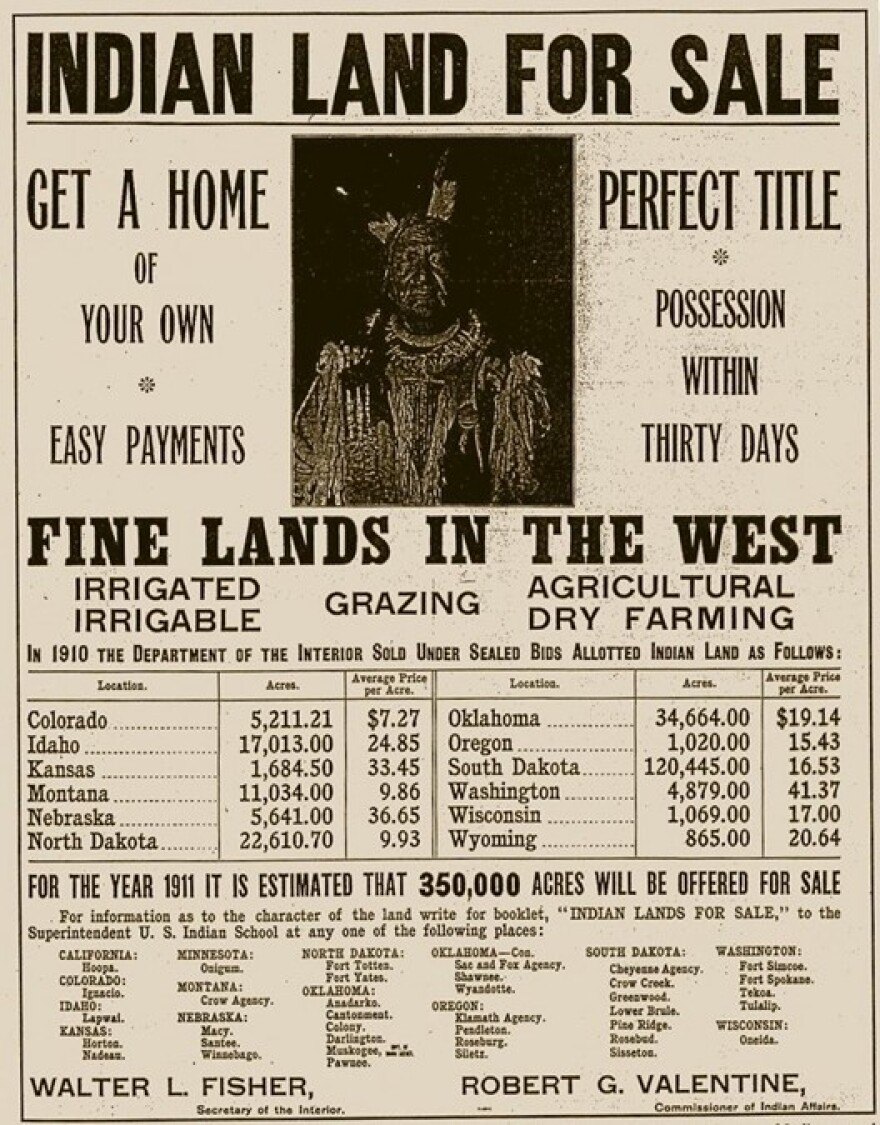Hi, I am Phillip Periman from Amarillo, Texas and I am one of the discussants for the HPPR Reader’s book club. This spring we are reading “Neither Wolf nor Dog” by Kent Nerburn. This is a book I would never have bought except that it was chosen for this year’s read. Once I started reading it, I could not put it down. Nerburn provides a griping poignant look into the mind and heart of the American Indian. In doing this he shows us a rich and meaningful culture and tradition that we destroyed and lost as we settled and took the country away from its original inhabitants.
The book came about as the result of an unexpected phone call from the main character’s granddaughter to the author, Kent Nerburn, who had written two books done after working with students on the Red Lake Ojibwe reservation in Minnesota. Dan, an elderly Lakota, had seen them and wanted to visit with Nerburn. He insisted that Nerburn leave home and drive to his reservation to meet in person. Several months later Nerburn got in his truck and drove west to meet and live with the old man and his pal Grover. When he got there the Indian elder gave Nerburn a collection of writings and clippings he had accumulated over the years and asked Nerburn to turn them into a book of his thinking about his tradition and its relationship to ours. When Nerburn came back with the first chapter, Grover said it was awful and the Nerburn needed to listen to Dan. What the Indian elder had to say was an extraordinary gift. Over the next few months, he slowly introduced Nerburn to his life and his past struggles. It was not an easy introduction. There would be long periods of silence. Finally, Dan pointed out how uncomfortable watching, listening, and silence made the white man. Dan claimed many of the calamities that befell his people was because white people liked to argue and had no patience for listening.
As Dan took Nerburn into the cafes, businesses, and homes of the Indians, he slowly explained how the Indians lost their lands, their way of life, and became in the words of Sitting Bull, “Neither Wolf nor Dog.” Dan would not always tell the whole story. Nerburn learned from granddaughter how as a child he had been taken away from his parents and made to live like an Anglo in the government Indian school where he was punished for speaking Lakota; his treatment constituted child abuse. That story however did not come from Dan.
The book advanced slowly. Just as Nerburn was about to give up and return to Minnesota his Nissan truck gave out. He then met Jumbo the only mechanic on the reservation who reluctantly agreed to fix it. With the truck in the shop, Dan, with Grover driving, took Nerburn to the sacred areas of his tribe; during the trip, Dan related how the US Army destroyed his people and drove them off their tribal lands. The trip ended with Nerburn and Dan camping out one night in the cemetery of the Indians: elderly, women, and children, slaughtered by the US Army at Wounded Knee. It was a pivotal moment for Nerburn. Thru out the trip Dan related the Lakota’s view of the meaning of life, freedom, tolerance, independence, and the relationship between man, animal, and the land. On their return, with the truck fixed, Nerburn realized that Groover and Dan had sabotaged it in order to give the Indian elder the time to ponder with Nerburn what forces had allowed his tribe to be destroyed. Dan proposed the only explanation was to liken the Indians to Jesus. Without their suffering the white man might never recognize his misplaced values that made greed and property more important than life.
Nerburn’s book provides the American, non-Indian reader insight into the tragic destruction of a way of life that thrived before the European‘s arrival. We lost so much reverence. This book might help restore some of it. I find it a must read.







